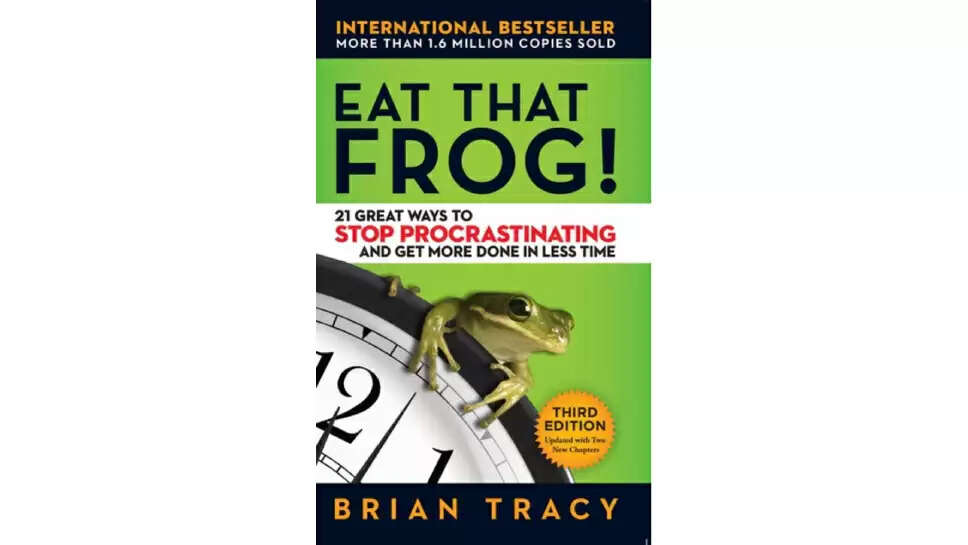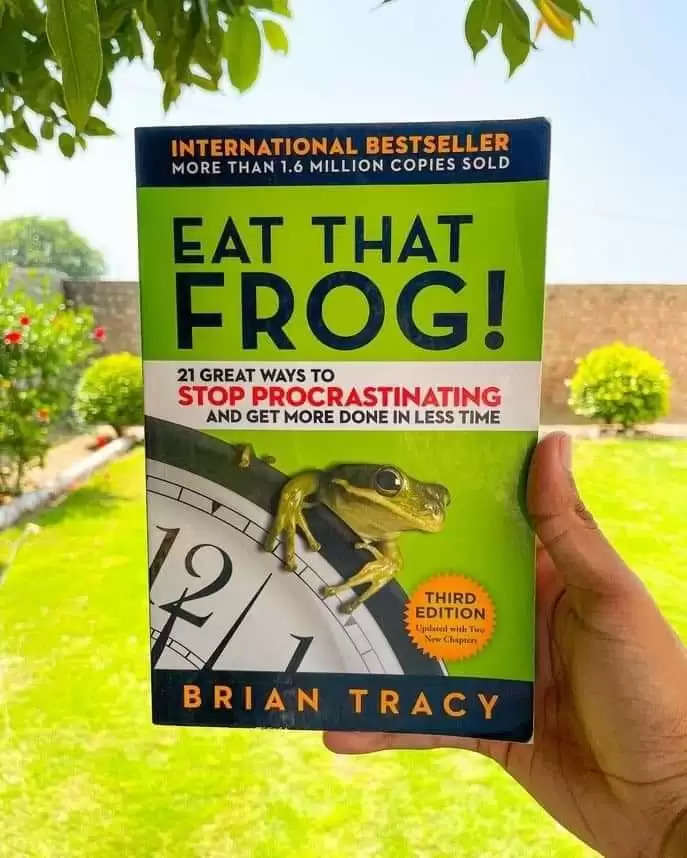10 lessons from "Eat That Frog!" by Brian Tracy

Now, let's talk about these 10 important lessons in a more casual way and see how they can change the way you work:
1. Set Clear Goals
Think about going on a car trip without a GPS or map. You'd likely get lost, right? That's why it's important to have clear goals. Be very clear about what you want to do. When you say "I want to be successful," you need to mean "I want to increase my sales by 20% over the next six months." Once you know what your big goals are, break them down into smaller steps that you can take. Making a list for your trip is like doing this. It's easy to plan your route when you know exactly where you want to go.
2. Prioritize Tasks
Picture your work as a spread of food. There are some things that are bigger and need to be eaten first. In this case, those important jobs are like "frogs." Find them and deal with them directly. To avoid getting stuck on less important tasks, focus on activities that will have a big effect and help you reach your goals. It's all about giving your best work to the most important things first.
3. Plan Every Day in Advance
When you woke up and started your day, did you ever find out by lunchtime that you were already behind? It's like going into a race without a plan. Every night, take a few minutes to plan your next day. Make a plan for the next 24 hours by writing down your chores and deciding which ones are most important. This small habit helps you make a plan for the day and stay on track.
4. Apply the 80/20 Rule
The Pareto Principle, or 80/20 Rule, says that you should work smarter, not harder. It says that if you do 80% of your jobs, you'll get 80% of your results. So, pay attention to that important 20%. Find the crops that give you the most food in a garden. In terms of getting the most out of your time and effort, focussing on these key tasks will give you the biggest return.
5. Consider the Consequences
Imagine that you have to choose whether to work on a job for an hour. Before you jump in, you should think about what might happen. "What will happen if I do this now?" "What if I don't?" Put jobs in order of importance based on how they will affect your goals and future the most positively. It's about making decisions that move you forward instead of just keeping you busy.
6. Practice the ABCDE Method
The ABCDE Method is an easy way to keep track of tasks that works really well. Sort your tasks into groups of four: A are "must do" tasks, B are "should do" tasks, C are "nice to do" tasks, D are tasks you can assign, and E are tasks you should get rid of. This method helps you keep your mind on the important things and stops you from wasting time on things that don't help you.
7. Focus on Key Result Areas
Imagine that your goals are like a game. To win, you need to be very good at certain things. Find these key result areas, such as the parts of your job or life where you need to do well to succeed. Focus your efforts on these important areas. You can improve your overall success and get closer to your goals if you work on these areas.
8. Develop a Sense of Urgency
Imagine that you are in a race. You won't win if you take too long. When you develop a sense of urgency, you act right away. You'll be more productive if you start and finish jobs faster. It's like giving yourself a little push to keep going and not put things off. You can get more done if you move faster.
9. Single-Handle Every Task
Multiple tasks may sound like a strength, but they often make you less productive and more likely to make mistakes. Instead, focus on things that you can do by yourself. Promise yourself that you will finish a job before moving on to the next one. It means giving one thing your full attention at a time. This helps you get more done and work faster.
10. Commit to Continuous Improvement
Last but not least, remember that you are a work in progress. Commit to always getting better by spending money on yourself and your skills. Always look for ways to get better, whether it's by reading a book, taking a workshop, or learning a new skill. This way of thinking helps you change and adapt, which makes you more useful and productive over time.
"Eat That Frog!" is basically about making habits that help you get things done and avoid putting things off. You'll be more productive and get more done if you set clear goals, organise your tasks, plan ahead, and keep your mind on what's important. Don't forget that being productive doesn't mean working harder; it means being better and making every action count.

Book: https://amzn.to/3AhoSxW
--
-- Class Dismissed --
You Might Also Like: 7 Gold-Mine Books for Business Success
